UN World Data Forum 2018
22-24 October 2018 | Dubai, United Arab Emirates (UAE)
Summary Highlights: 22-24 October 2018
Highlights for Wednesday, 24 October 2018
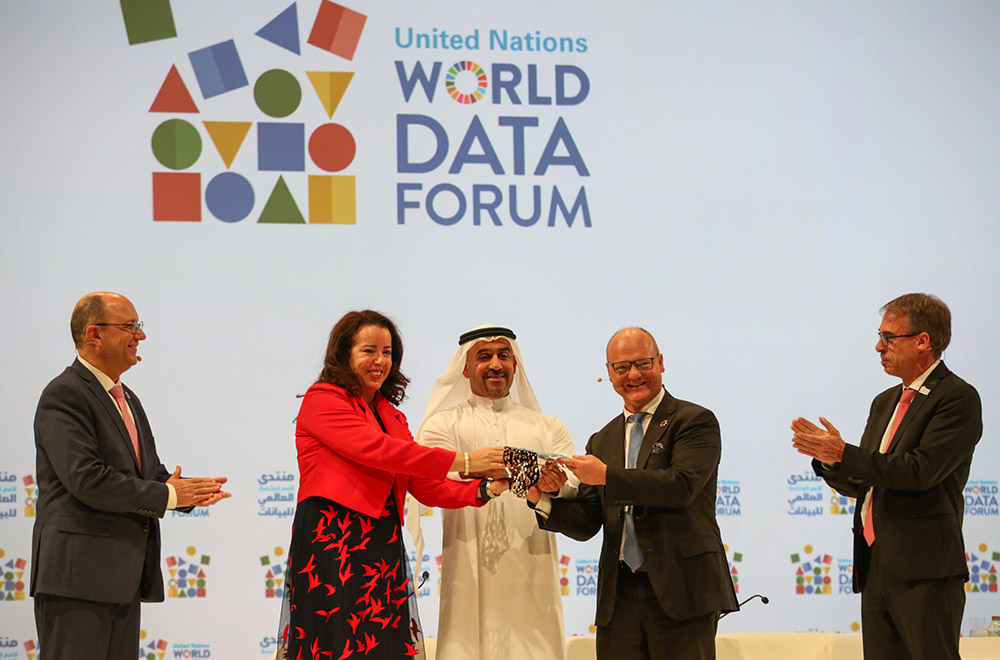
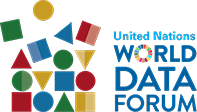 On the third and final day of the second UN World Data Forum, delegates participated in twenty parallel events addressing topics ranging from the role and profile of data scientists and data journalists to challenges and opportunities related to non-official data, corruption and governance, national data platforms, and multi-stakeholder collaborations for sustainable development in Africa.
On the third and final day of the second UN World Data Forum, delegates participated in twenty parallel events addressing topics ranging from the role and profile of data scientists and data journalists to challenges and opportunities related to non-official data, corruption and governance, national data platforms, and multi-stakeholder collaborations for sustainable development in Africa.
Two panels convened in the afternoon for the closing plenary. Speakers on the first panel represented a variety of data communities that had attended the Forum and discussed strengths, challenges and hopes for the way forward. Panelists highlighted the need for:
- Attention to issues related to coordination of national statistical systems at the national level;
- Addressing privacy and trust issues related to use of non-official data sources;
- A coherent approach to traditional and non-traditional data sources and capacity;
- Data infrastructure that is affordable, accessible and usable by a variety of users;
- Capacity development that is affordable and responsive to user needs; and
- Strengthening legal frameworks to protect users and to enable data sharing especially as it relates to public and private partnerships.
Panelists highlighted their hopes for the third World Data Forum, which will be hosted by Switzerland in Bern, from 18-21 October 2020. Suggestions for the third World Data Forum included:
- Take stock of current situation of data statistics;
- Enable review process for countries to report on progress made on the Cape Town Global Action Plan;
- Provide an avenue for impact stories and measuring the returns on investments in data;
- Showcase tools, techniques and celebration of advancements made in the data community; and
- Showcasing concrete results.
The Dubai Declaration was announced at the final plenary panel. Stefan Schweinfest told a closing press conference that the Declaration:
- Commits to continue the journey that was begun at the first UN World Data Forum, in Cape Town;
- Focuses on implementation and practical solutions; and
- Addresses funding and financing for data.
Abdulla Nasser Lootah, Director General, Federal Competitiveness and Statistics Authority, United Arab Emirates, thanked participants, saying, “We all believed in peace, we all practiced respect and we all expressed appreciation.”
The second UN World Data Forum closed at 6:42 pm.
IISD Reporting Services, through its ENB+ Meeting Coverage, provided daily digital coverage and a summary report from the UN World Data Forum 2018, which is availabe in HTML and PDF.
Photos by IISD/ENB | Kiara Worth
For photo reprint permissions, please follow instructions at our Attribution Regulations for Meeting Photo Usage Page
+ Visit the web coverage for Wednesday, 24 October 2018
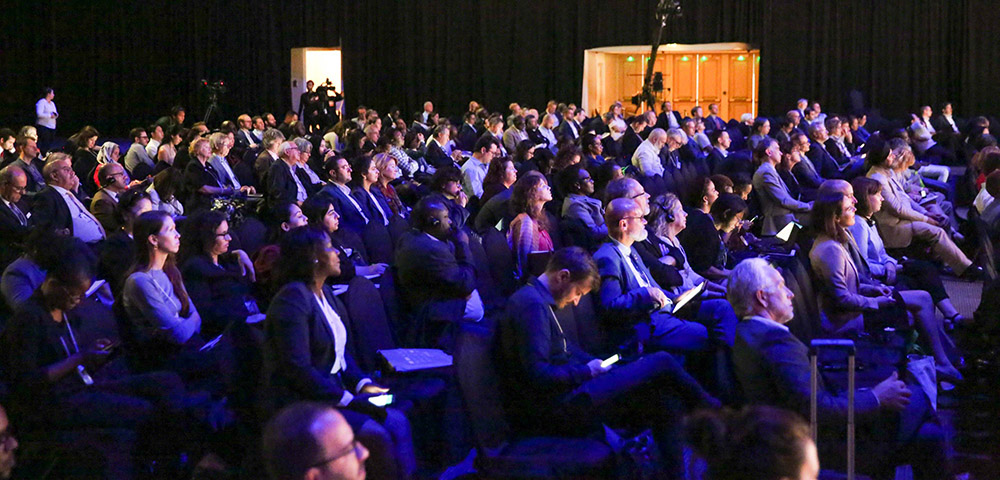
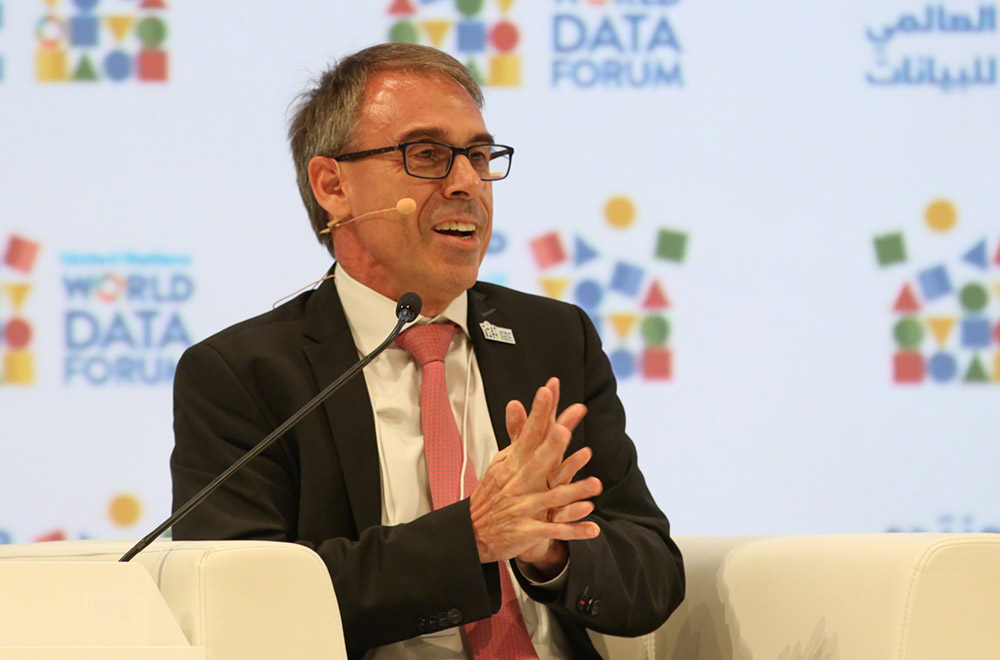
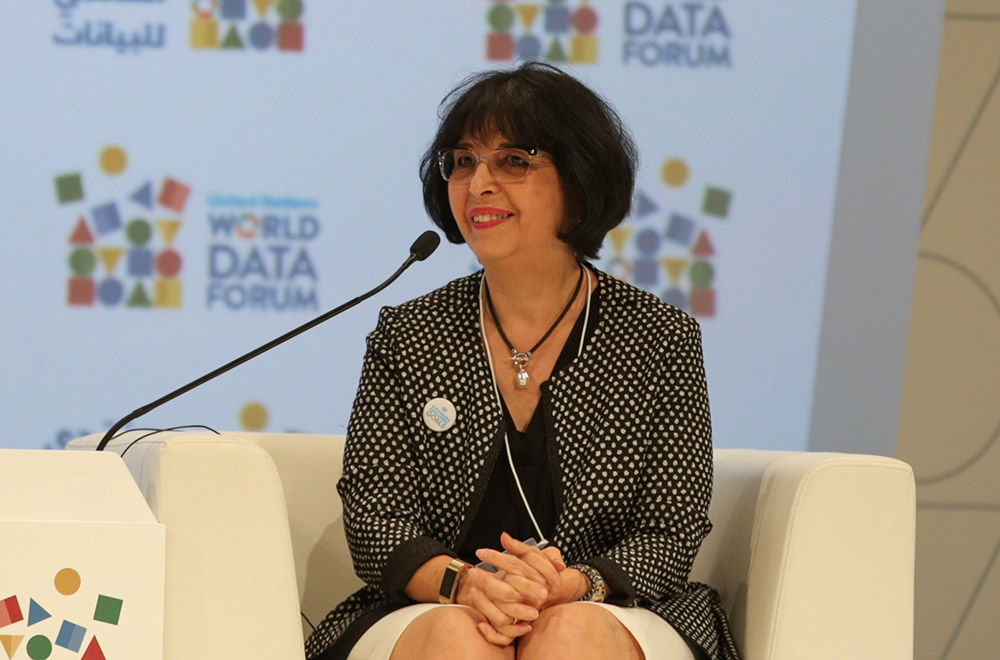
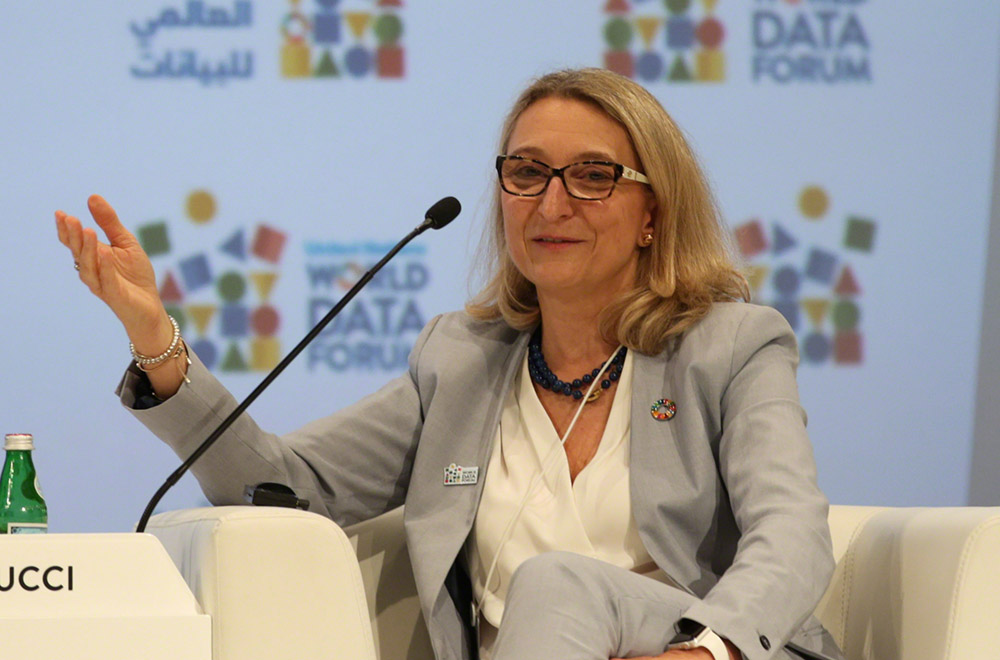
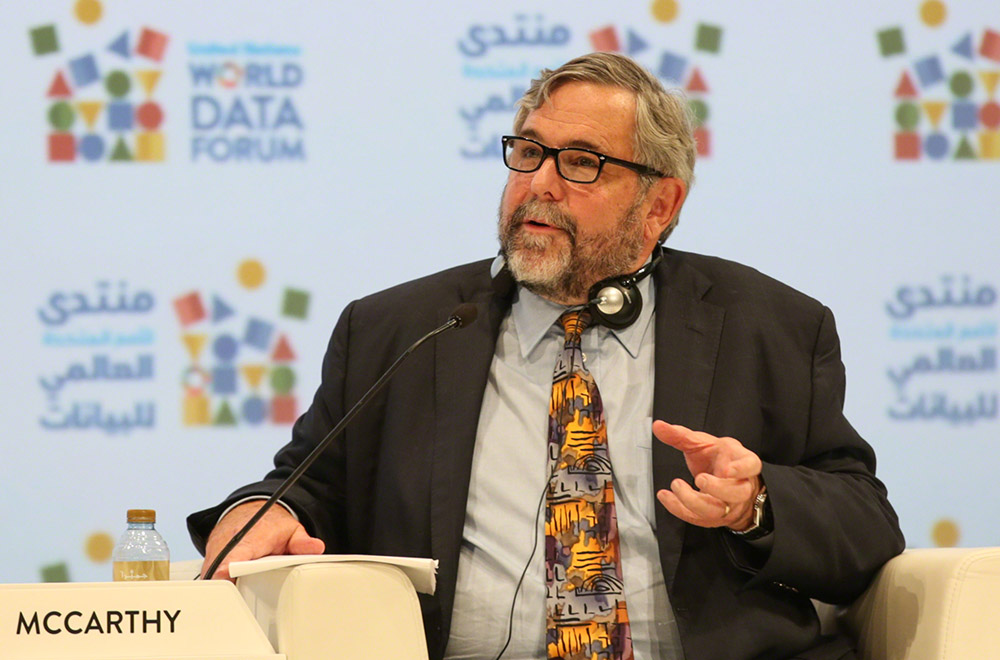
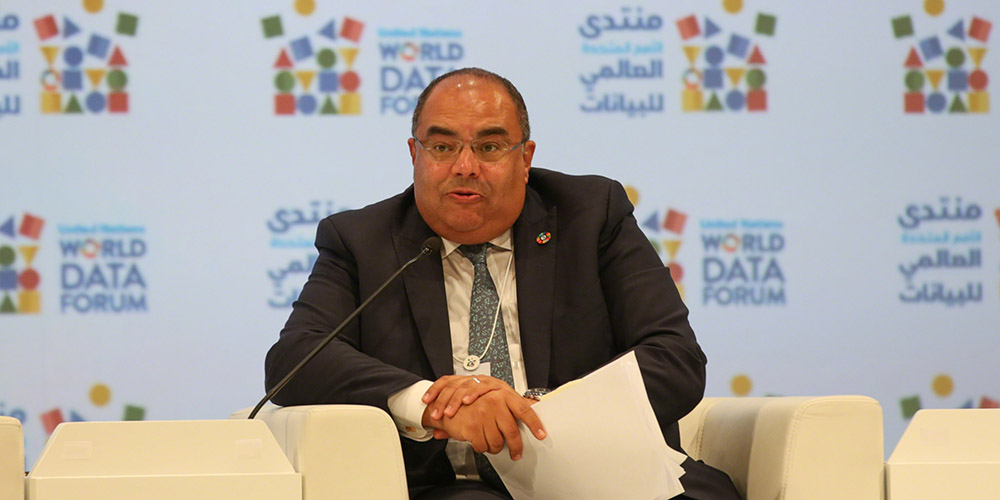
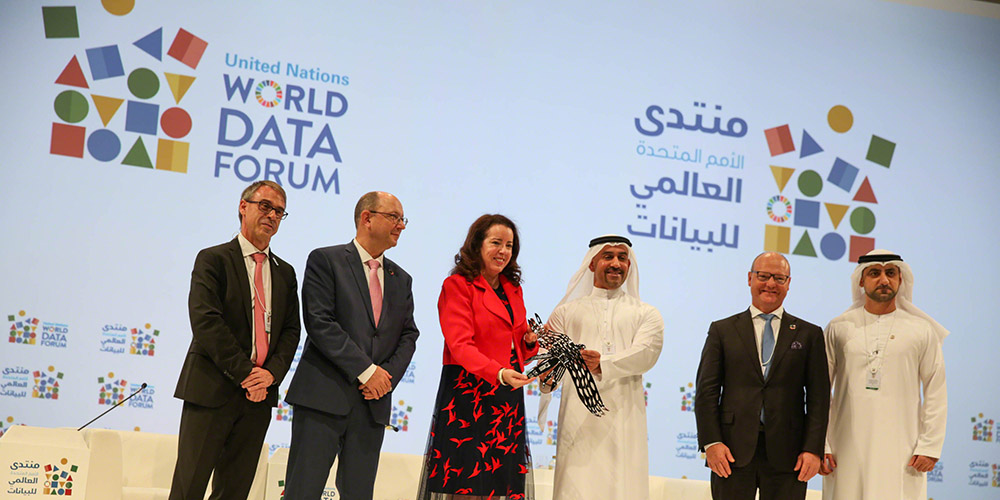
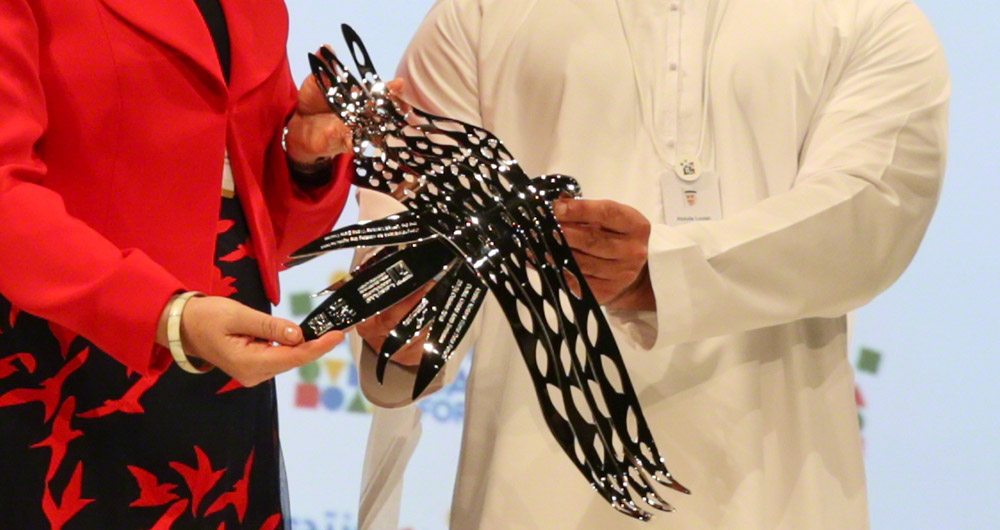
Highlights for Tuesday, 23 October 2018
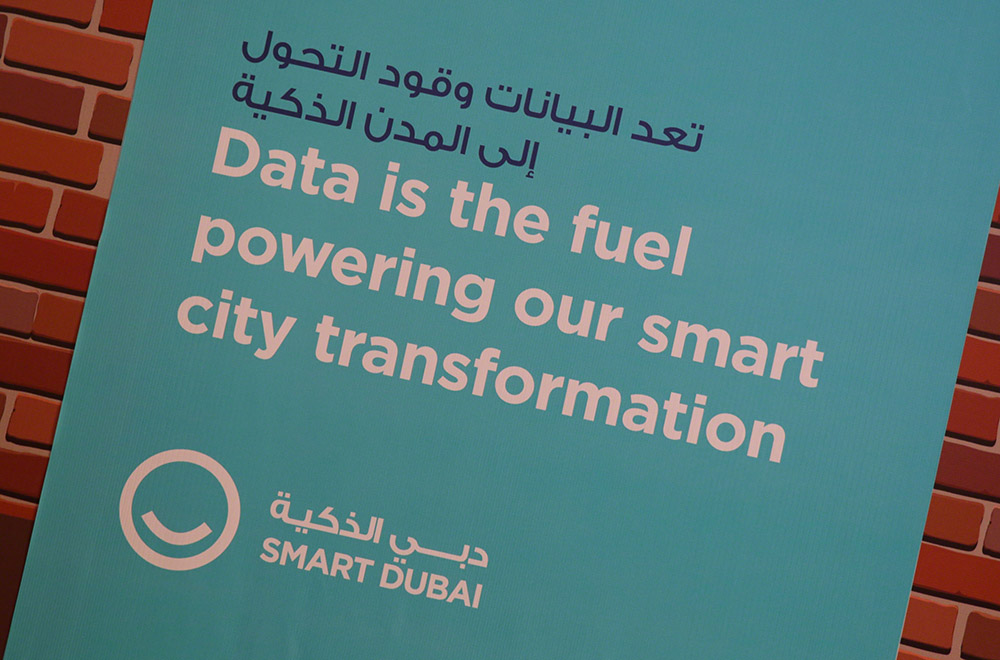
On the second day of the second UN World Data Forum, participants attended a variety of parallel sessions addressing the Forum’s six themes:
- innovations and synergies across data ecosystems;
- leaving no one behind;
- building trust in data and statistics;
- how far have we come?;
- understanding the world through data; and
- new approaches to capacity development for better data.
The day opened with a session addressing the political economy of statistical capacity, during which panelists noted previous speakers’ comparisons of statistics to water, oil, currency, or an otherwise-vital force, noting that we only tend to recognize when it is missing or of poor quality. Additional issues raised during this session included the need to:
- think of data as the soft infrastructure of development;
- capture the benefits from data driving action at local level;
- engage statisticians in the preparation and presentation of Voluntary National Reviews; and
- participate in the review of the SDGs process that will take place in the context of the 2019 meetings of the High-level Political Forum on Sustainable Development (HLPF).
UN World Data Forum participants also engaged in discussions on whether National Statistical Offices (NSOs) will exist in 2030, arriving at the answer of yes, due to their ability to deliver consistency over time and space, high standards for accuracy, and independence.
A discussion on gender data impact stories considered the relationship between a single human story and the data that describe a broader story that has the potential to influence policymakers towards more gender responsive policies.
Additional sessions on Tuesday addressed: trust in data; capacity building for a number of communities, including diplomats and policy-makers; the contribution of data to the lives of children and migrants; community-based data collection; the data revolution and cooperation; Earth observation applications; civil registration and digital identity; and statistical literacy.
During the evening, the host country treated participants to a performance of “La Perle” – a show that combines artistic performance, creative imagery and ground-breaking technology.
+ Visit the web coverage for Tuesday, 23 October 2018
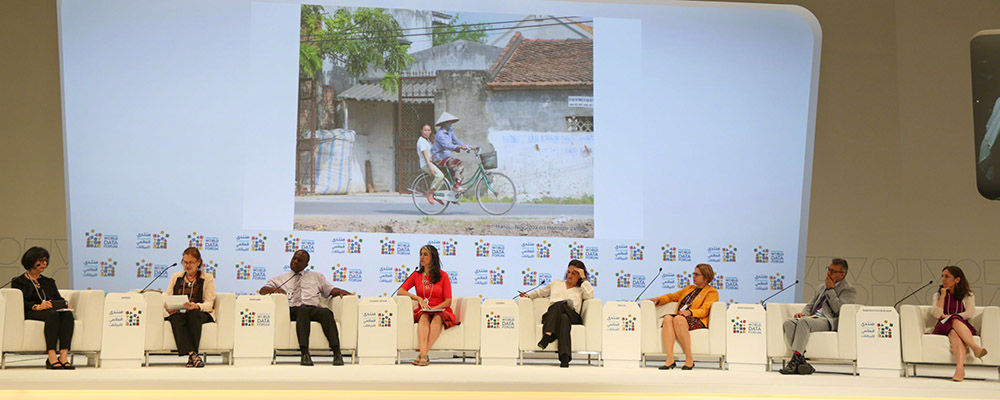
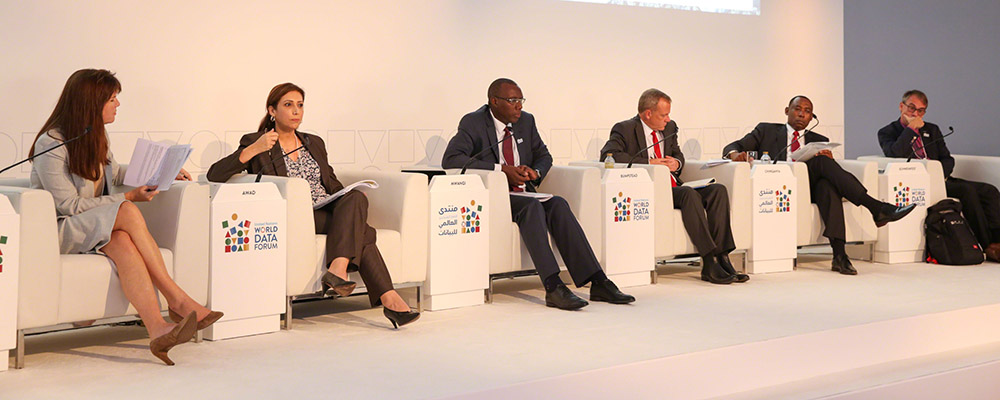
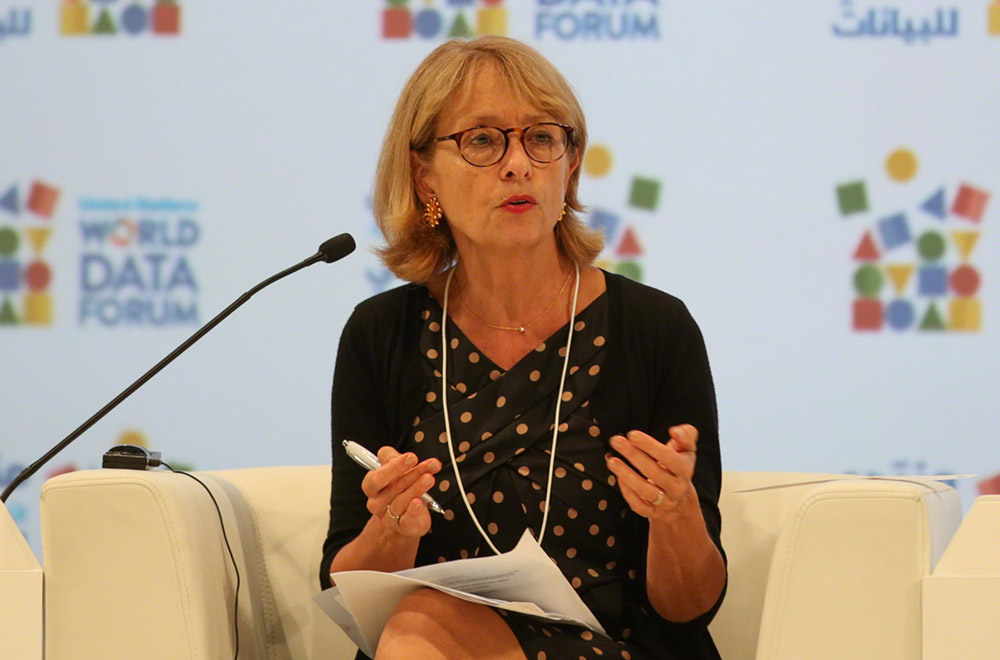
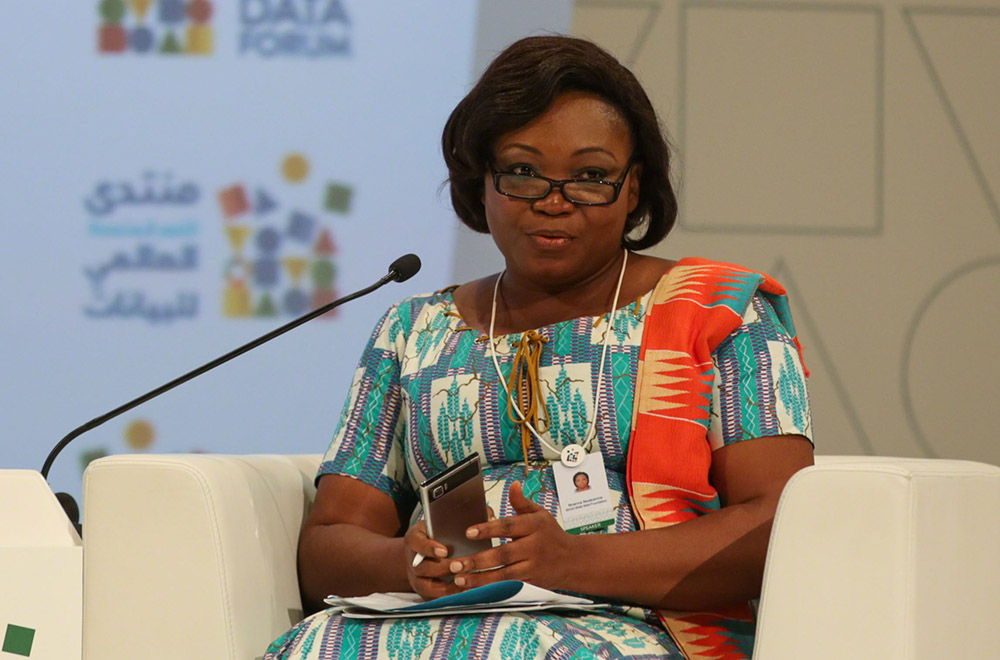
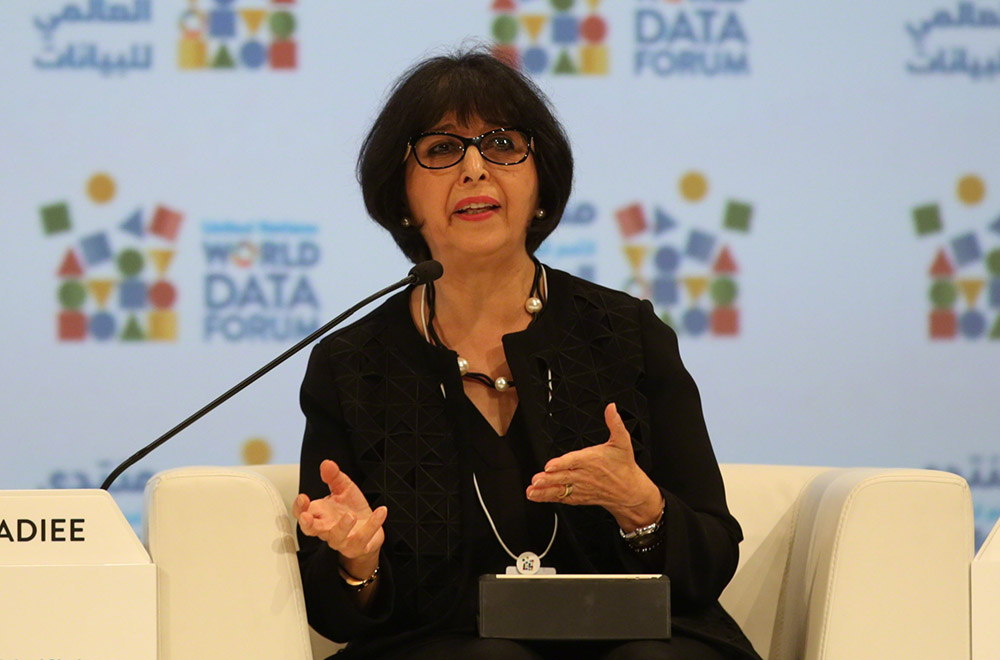
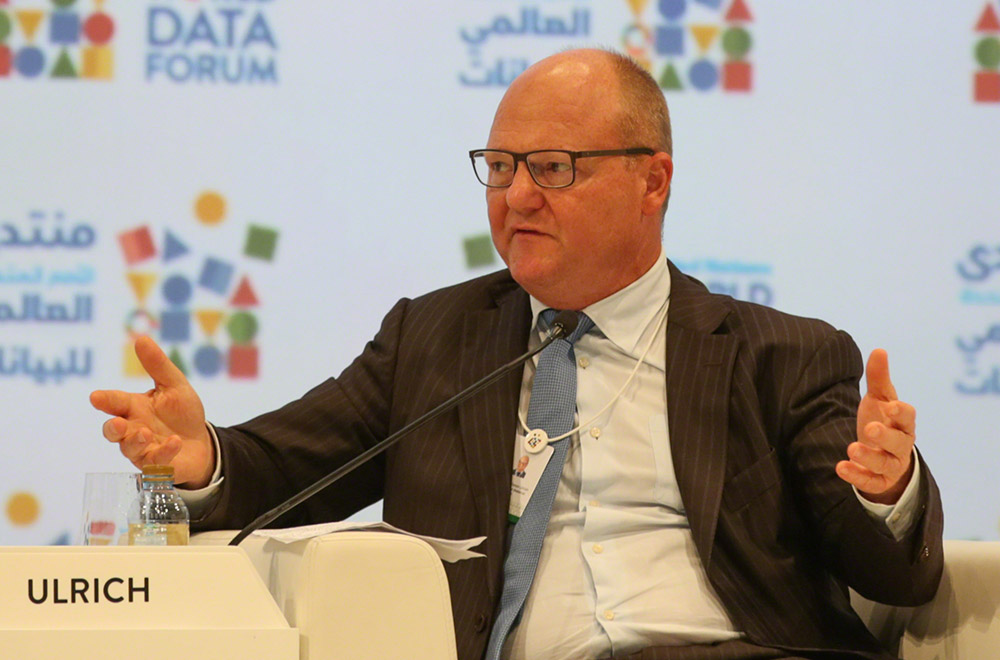
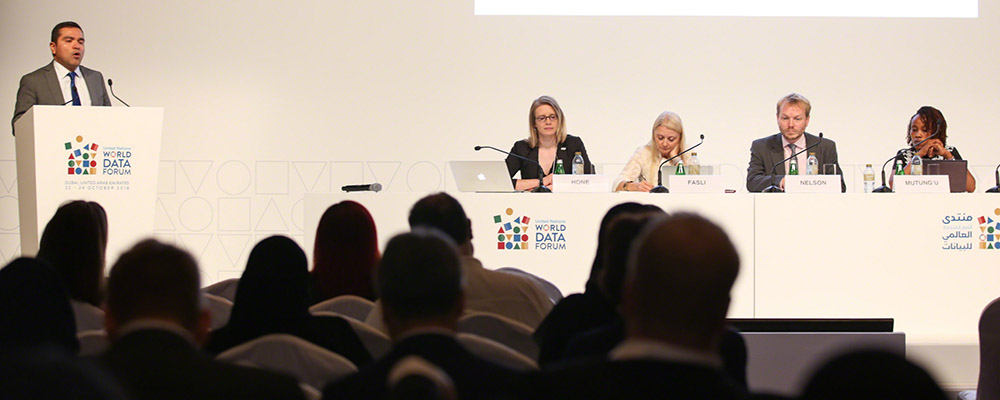
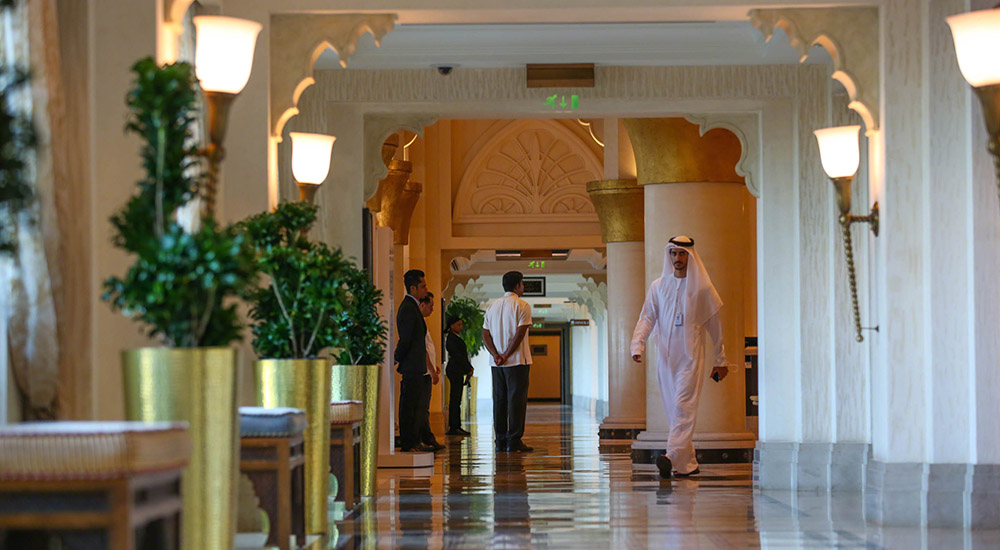
Highlights for Monday, 22 October 2018
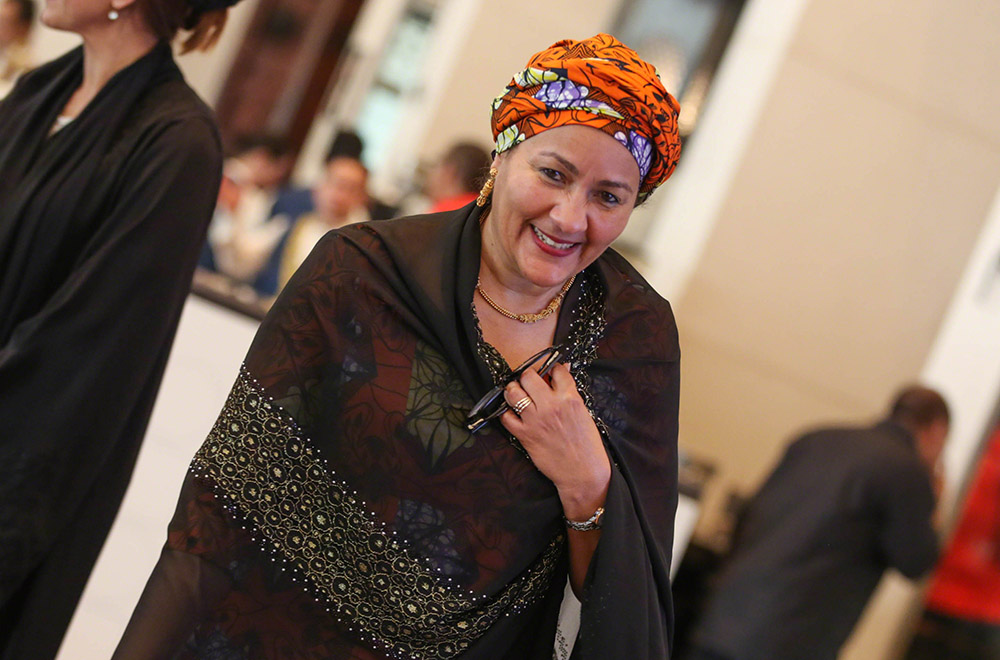
The second UN World Data Forum opened on Monday, 22 October 2018. During the opening plenary, Liu Zhenmin, Under-Secretary-General, UN Department of Economic and Social Affairs, reflected on the value of the Forum to implementing the SDGs and guiding international development policy through the successful integration of economic, social and environmental data. He highlighted the importance of removing barriers to new data sources and modernizing national statistical systems to meet new data demands.
High-level statements were offered by Abdulla Nasser Lootah, Director General, Federal Competitiveness and Statistics Authority, United Arab Emirates, and Amina Mohammed, UN Deputy Secretary-General. Lootah thanked Sheikh Mohammed bin Rashid Al Maktoum, Vice-President and Prime Minister of the UAE and Ruler of Dubai, for participating in the session, and highlighted that the UAE is working to ensure the best possible data for driving the Fourth Industrial Revolution, to ensure that it involves the best innovation possible.
Mohammed highlighted that robust and accessible data and information can provide a host of benefits, including the ability of citizens to monitor how their governments are performing and to hold decision-makers to account. She called attention to a number of related UN projects on data, including the Open Data Hub for the SDGs, the Global SDG indicator website, and UN Global Pulse. She also stressed that UN country teams of the future must be equipped with the skills and capacities necessary to harness the opportunities offered by all types of data and innovation.
During an opening roundtable dialogue on harnessing the power of data to meet the data demands of the 2030 Agenda, Mahmoud Mohieldin, World Bank Group, highlighted the 2018 SDG Atlas, which maps, charts and provides stories related to the SDGs and draws on the World Development Indicators, a database of over 1400 indicators for more than 220 economies with data going back 50 years. Omar Al Olama, Minister of State for Artificial Intelligence, noted that meteorological and climate change data amounts to 100 million gigabytes per day, and said it would take scientists over one hundred years to analyze. He said this scenario demonstrates humanity’s race against time in the use of data. Harpinder Collacott, Development Initiatives, underscored the value of policymakers at the national and sub-national levels in determining data investments to ensure informed policies for decision making. Clint Brown, Esri, called attention to the emerging opportunities to bring together data from multiple systems as well as the possibilities to use large data sets with cloud systems.
Nearly 2,000 registered participants participated in 30 parallel events during the first day, addressing topics ranging from big data to capacity building, data platforms, and community data collaborations.
+ Visit the web coverage for Monday, 22 October 2018
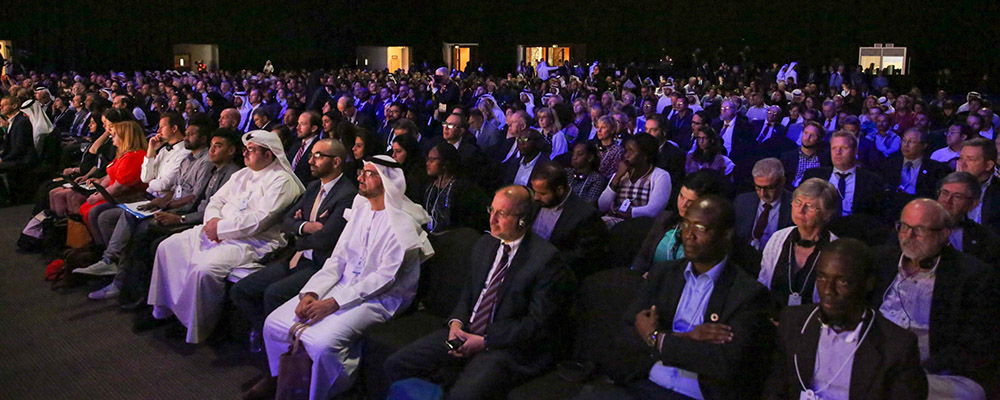
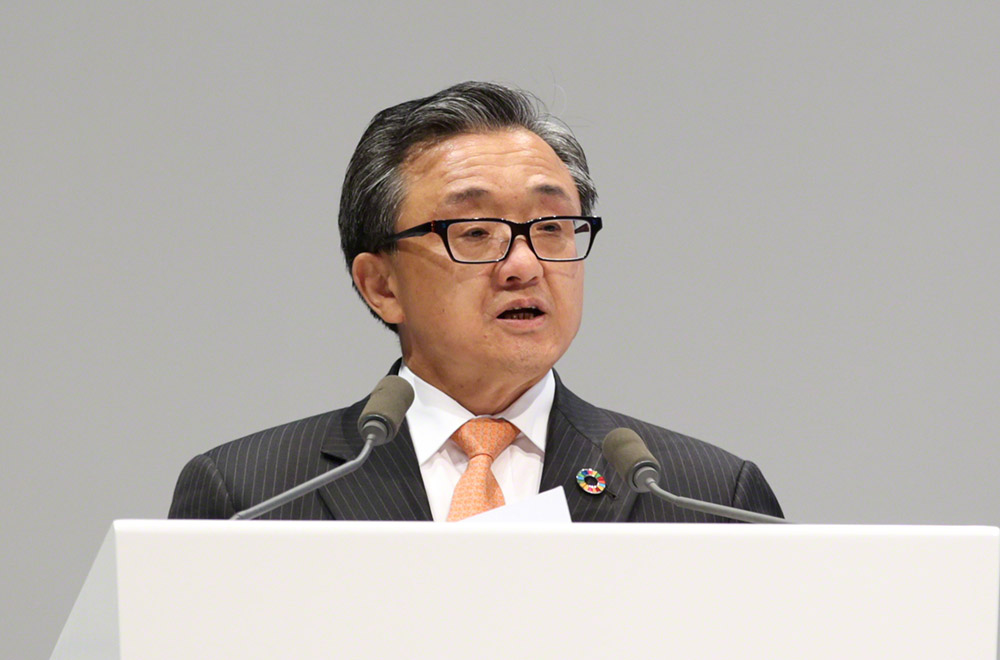
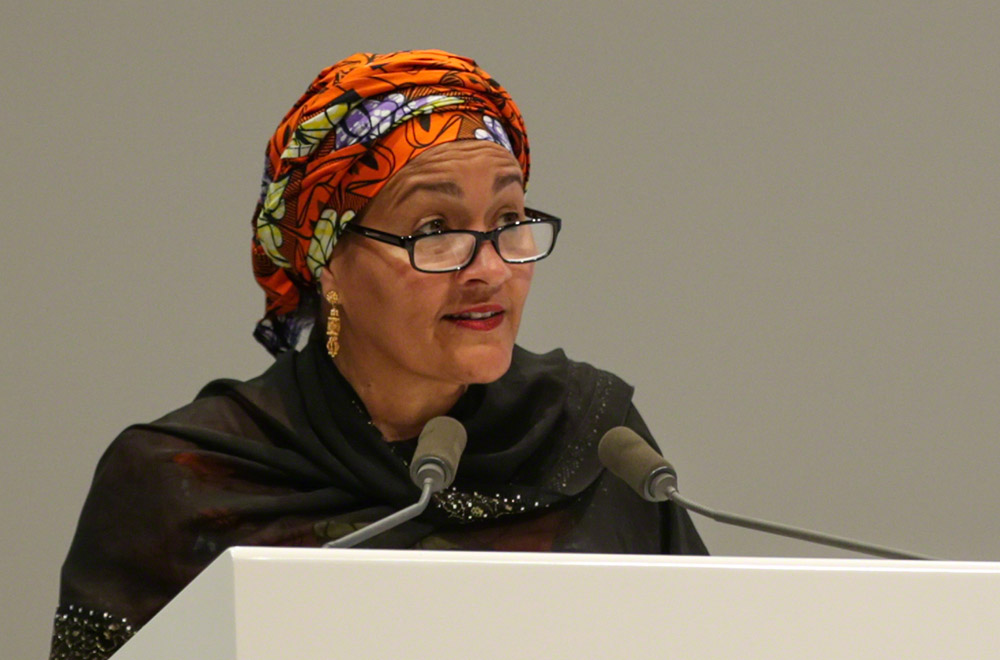
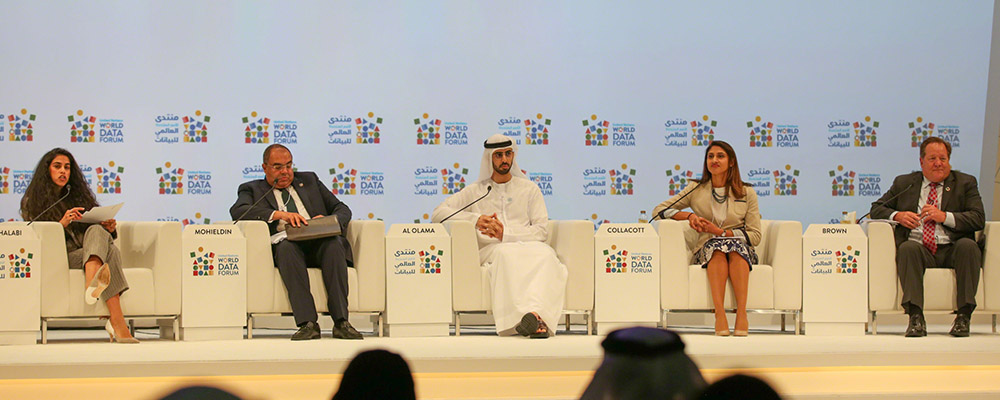
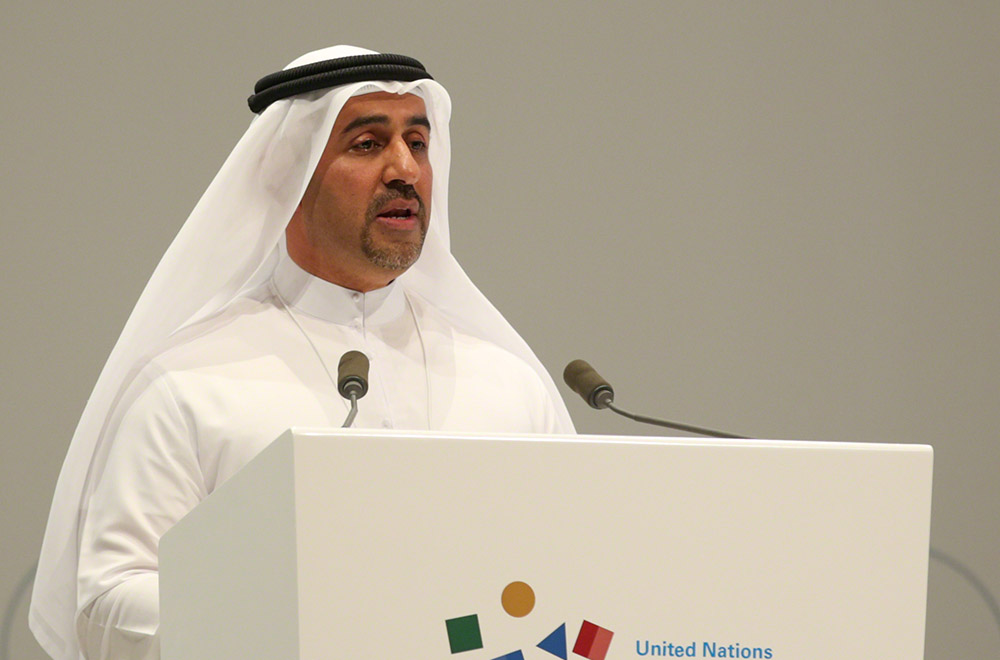
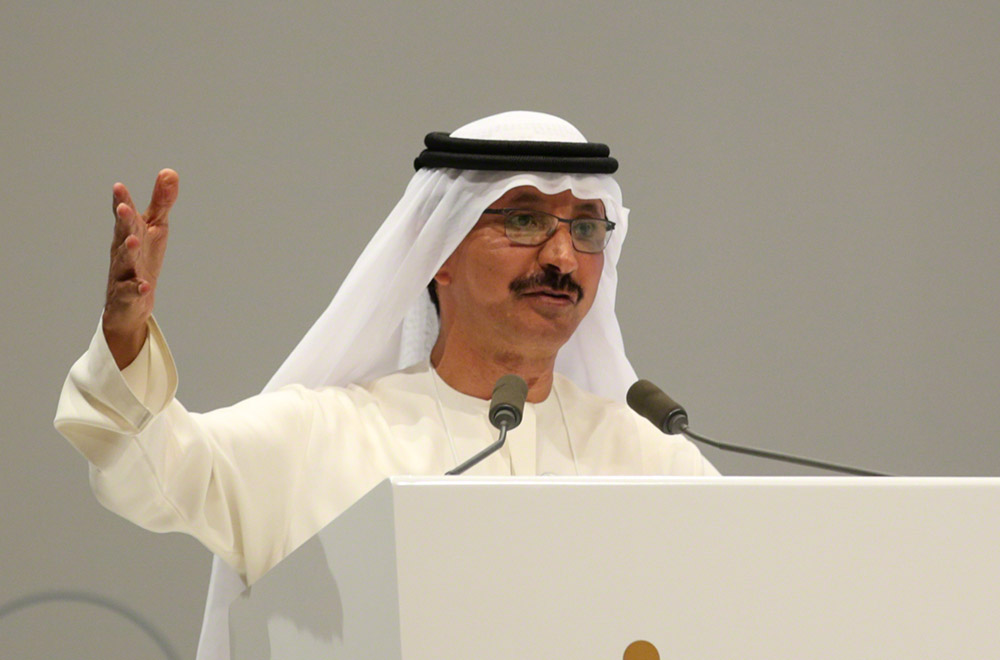
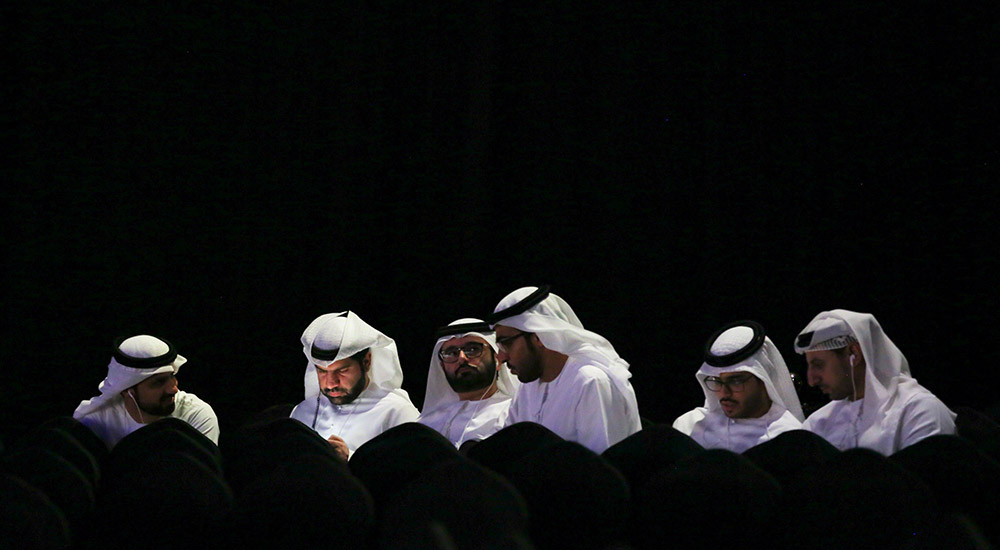

DOWNLOAD ENB+ REPORT
UN World Data Forum Resource
IISD ENB/ENB+ Meeting Coverage
- UN World Data Forum 2017, 15-18 January 2017, Cape Town, South Africa
- Earth Negotiations Bulletin (ENB) Coverage of Negotiations on the SDGs and Post-2015 Development Agenda
IISD Resources
- SDG - A Mailing List for News on Sustainable Development Policy
- SDG Update Newsletter - A compilation of news, commentary and upcoming events published on the SDG Knowledge Hub
- SDG Knowledge Hub - An Online Resource Center for News and Commentary Regarding the Implementation of the United Nations’ 2030 Agenda for Sustainable Development, including all 17 Sustainable Development Goals (SDGs)
- Linkages Update - International Environment and Sustainable Development News
 Specific funding for IISD Reporting Services coverage of the UN World Data Forum 2018 has been provided by the Government of Switzerland
Specific funding for IISD Reporting Services coverage of the UN World Data Forum 2018 has been provided by the Government of Switzerland